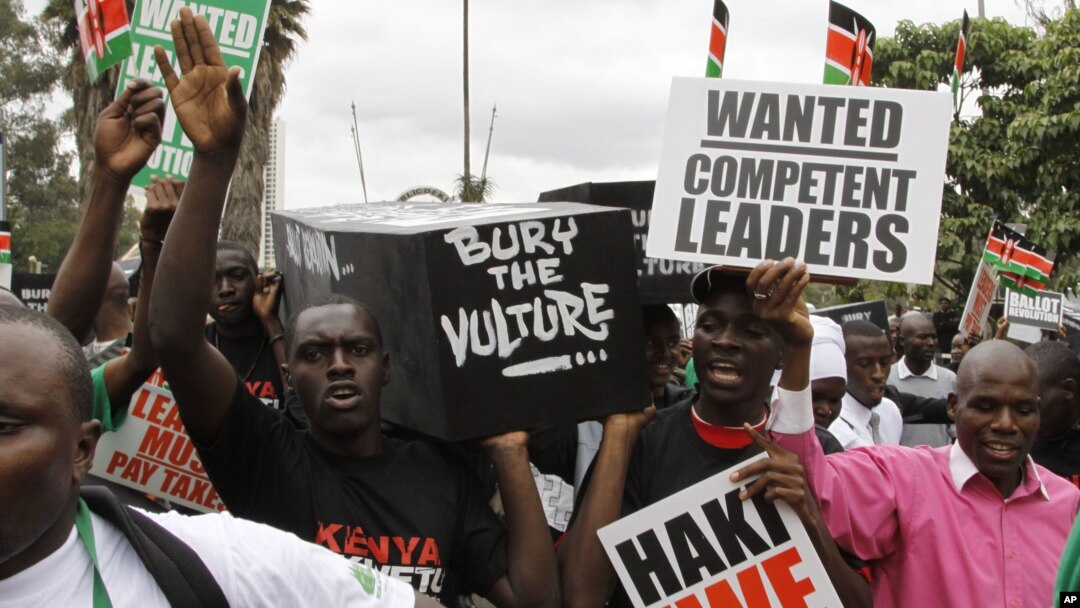NAIROBI —
Political activists are expressing fears of a return to election-related violence in Kenya, despite four years of relative stability. Civil society activists believe recent reforms are not enough to prevent unrest.
Kenyan civil society groups gathered in Nairobi to discuss ways to encourage good governance and peaceful elections, as the March 2013 elections draw near.
Professor Kimani Njogu, the head of Twaweza Communications, told VOA the reforms the country has undergone, including adoption of a new constitution, have not stopped violence.
“The constitution itself is a very good document, but by itself it is not sufficient," said Njogu. "I think there is a lot of work that needs to be done to really carry the spirit of the constitution, practice and implement it.”
The recent clan clashes in Tana Delta region, where more than 100 people lost their lives, including police officers, have increased fear among Kenyans and made them question their government's ability to intervene and stop ethnic fighting.
Njogu says new provisions in the constitution that give more power to local governors raise the stakes of the upcoming polls, and create the potential for a higher degree of violence than in 2007.
Kenya experienced a wave of riots and ethnic violence, following the disputed presidential vote that December. At least 1,300 people were killed and more than 300,000 were uprooted from their homes.
The International Criminal Court (ICC) in the Hague has brought charges against two Kenyan politicians, a government official and radio presenter Joshua Arap Sang on grounds they helped to orchestrate that violence.
According to Media Council of Kenya Program Manager Victor Bwire, the issue of the ICC has also had an impact on how media operates.
“The issue of ICC has a big impact I can tell you, from wherever we go throughout the country when we meet journalists we talk about Sang, one of the journalist[s] going to Hague," said Bwire. "You see now people have started feeling the issue of individual responsibility as a journalist that you will not just air a program carelessly or write an article carelessly, action will be taken against you as an individual.”
Kenya’s coalition government is confident the reforms it introduced will prevent unrest this time around, but some Kenyans feel violence is inevitable.
Kenyan civil society groups gathered in Nairobi to discuss ways to encourage good governance and peaceful elections, as the March 2013 elections draw near.
Professor Kimani Njogu, the head of Twaweza Communications, told VOA the reforms the country has undergone, including adoption of a new constitution, have not stopped violence.
“The constitution itself is a very good document, but by itself it is not sufficient," said Njogu. "I think there is a lot of work that needs to be done to really carry the spirit of the constitution, practice and implement it.”
The recent clan clashes in Tana Delta region, where more than 100 people lost their lives, including police officers, have increased fear among Kenyans and made them question their government's ability to intervene and stop ethnic fighting.
Njogu says new provisions in the constitution that give more power to local governors raise the stakes of the upcoming polls, and create the potential for a higher degree of violence than in 2007.
Kenya experienced a wave of riots and ethnic violence, following the disputed presidential vote that December. At least 1,300 people were killed and more than 300,000 were uprooted from their homes.
The International Criminal Court (ICC) in the Hague has brought charges against two Kenyan politicians, a government official and radio presenter Joshua Arap Sang on grounds they helped to orchestrate that violence.
According to Media Council of Kenya Program Manager Victor Bwire, the issue of the ICC has also had an impact on how media operates.
“The issue of ICC has a big impact I can tell you, from wherever we go throughout the country when we meet journalists we talk about Sang, one of the journalist[s] going to Hague," said Bwire. "You see now people have started feeling the issue of individual responsibility as a journalist that you will not just air a program carelessly or write an article carelessly, action will be taken against you as an individual.”
Kenya’s coalition government is confident the reforms it introduced will prevent unrest this time around, but some Kenyans feel violence is inevitable.



